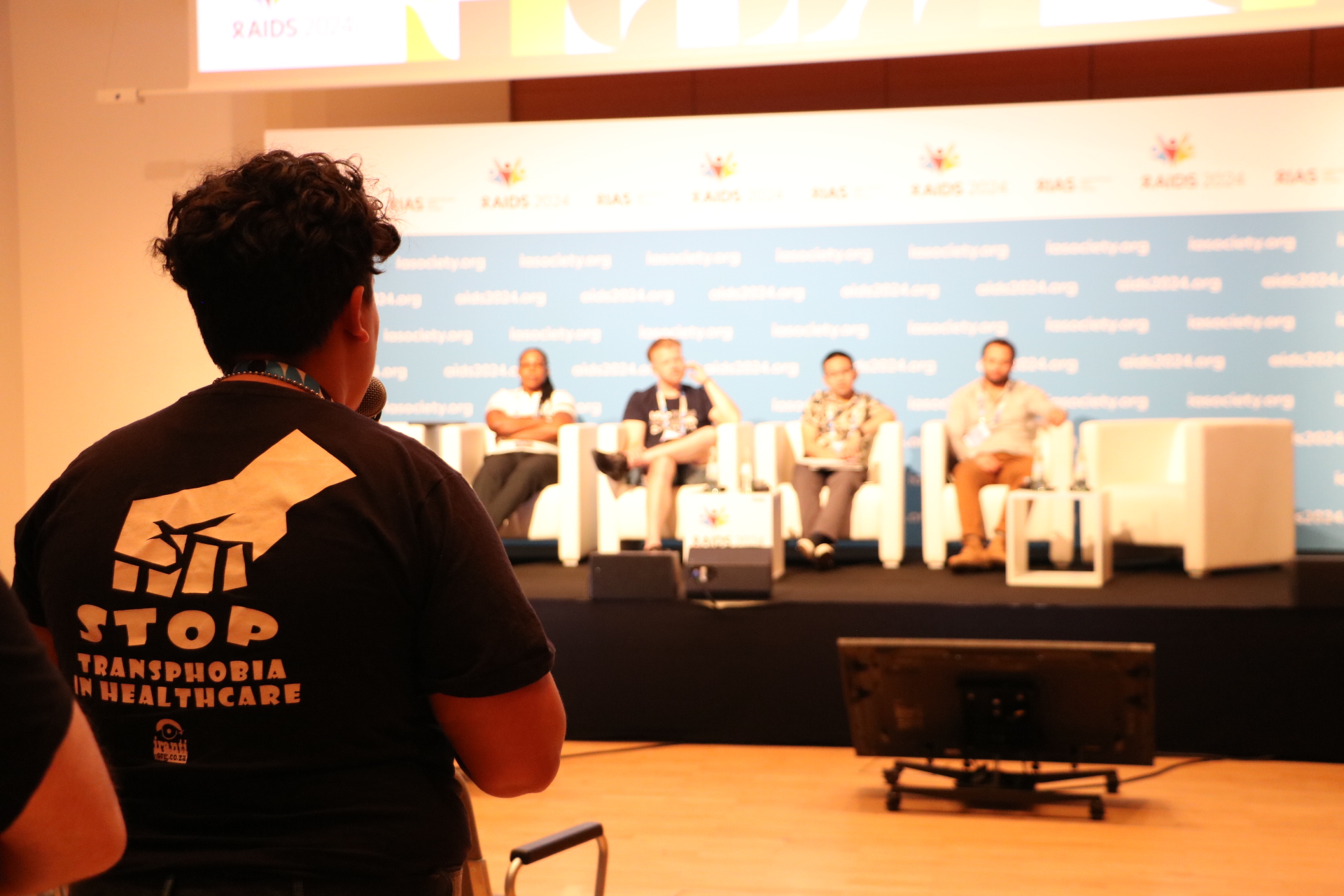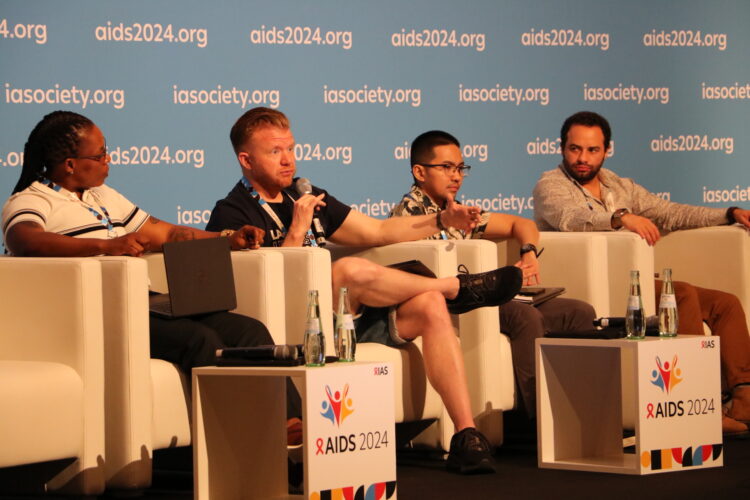24 July 2024, Munich, Germany – “Trans men and HIV: Advancing inclusion for a healthier future” satellite session at the AIDS 2024 Conference focused on the historically excluded trans men in the global HIV response.
On World AIDS Day 2023, GATE, in collaboration with the International Trans Men and HIV Working Group, launched two crucial documents aimed at improving the global HIV response for trans men and other assigned female at birth trans persons. Historically excluded from HIV initiatives, their inclusion is vital for meeting the Global AIDS Targets 2025, and their voices are being heard at the AIDS 2024 Conference.
Anil Padavatan, GATE Health Lead, made it clear from the beginning that the inclusion of trans men in the HIV response is as essential as funding and that including trans men“will not take away funding from trans women.” He reassured that “what the movement needs is additional funding for all trans and gender diverse people, including trans men and assigned female at birth trans persons living with HIV.” Daniel Benitez-Posada highlighted the realities of trans men in Colombia and confirmed that their “work is in the shadows and severely underfunded.”
Before funding can become a much closer reality, some countries are far behind in addressing a much more urgent problem: “the unhuman criminalizing laws that persecute, violate and send trans and gender diverse people to the margins of society,” stated Jay Mulucha, Executive Director of Fem Alliance Uganda. He claims that these laws prevent trans men from HIV treatment due to fear of facing discrimination and violence.
Some discrimination faced by trans and gender diverse people has deep roots in heteronormativity assumptions that keep perpetuating sexual and gender stereotypes, added Ciánan Russel, Senior Policy Officer at ILGA Europe. Inclusively, some trans men have been facing severe sexual violence and intersectional stigma on their sexuality. They mentioned that there’s a long way to go in research to fully include trans men in clinical trials and research worldwide.

A shared urgent need amongst speakers was to include gender affirming care in the HIV global response and as part of sexual and reproductive health services. Good Information and deconstruction of myths and stereotypes are key amongst men who have sex with men as a way of tackling sexual violence against trans men. Many gay and bisexual trans men are giving in to social pressure from their cisgender peers to engage in risky behaviors such as their capacity to consent or sexualized drug use – chemsex.
At the end of the session, all speakers agreed that peer-work is essential to address these common issues, and gender affirming care must take into consideration the intersectionalities of trans identities and should be included in sexual and reproductive health services as good role models to follow.
The Policy Brief on Effective Inclusion of Trans Men in the Global HIV and Broader Health and Development Responses was designed for policymakers, health officials, global health bodies, donor organizations, and civil society organizations to address the specific needs of trans men in HIV response programs. The accompanying Factsheet supports advocacy and counters misinformation intended for trans and gender-diverse communities and anyone seeking knowledge on this topic.

Urgent issues highlighted included the need for reliable data and addressing stigma and discrimination. Key health priorities for trans men include violence prevention, access to hormones, and gender-affirming care, which are essential for achieving the Global AIDS Strategy’s targets. This initiative called for increased resources to ensure comprehensive support for both trans women and trans men in the global HIV response.





